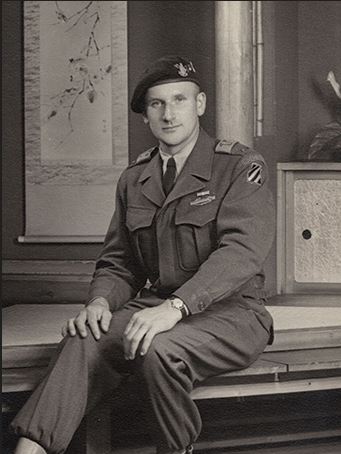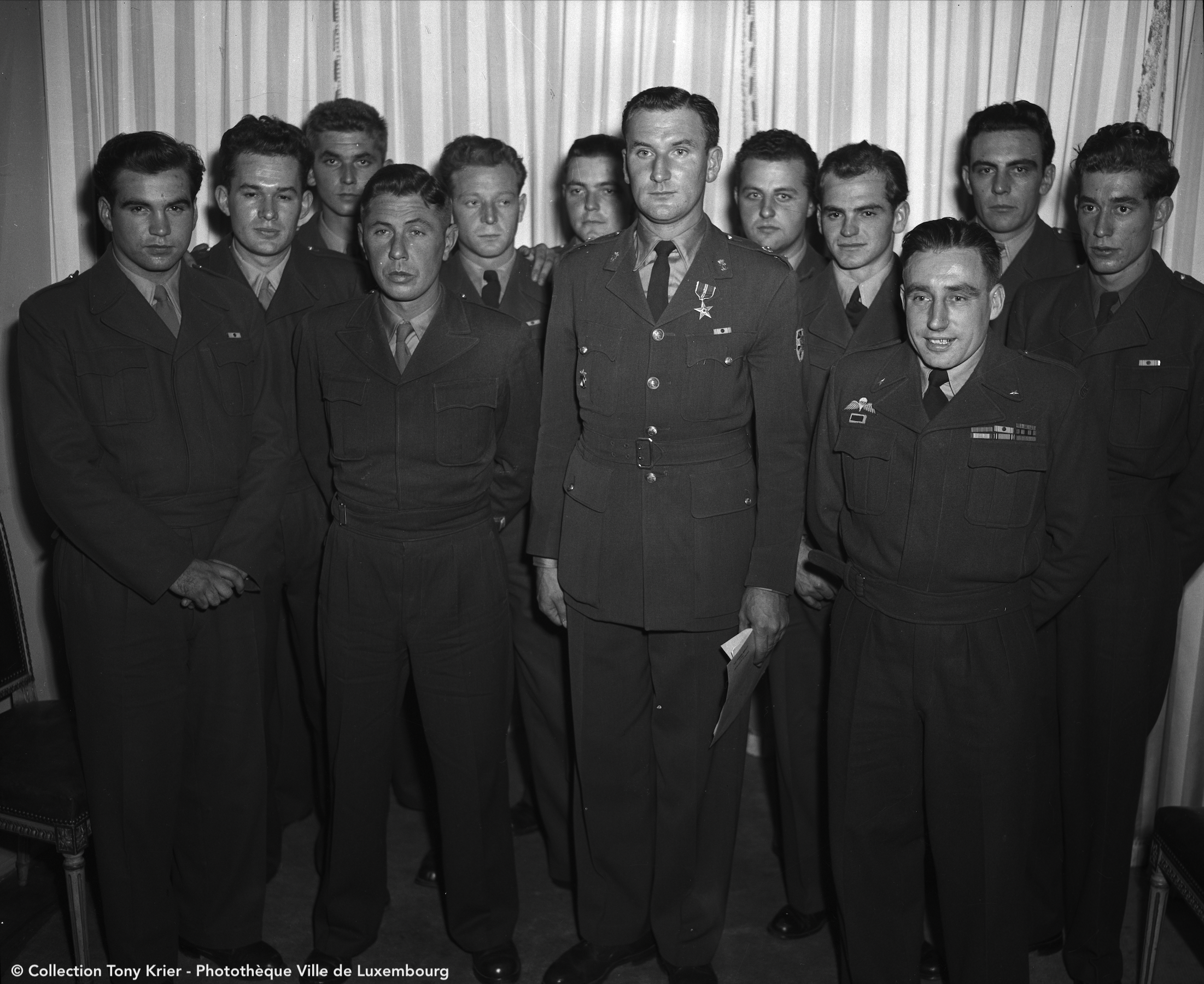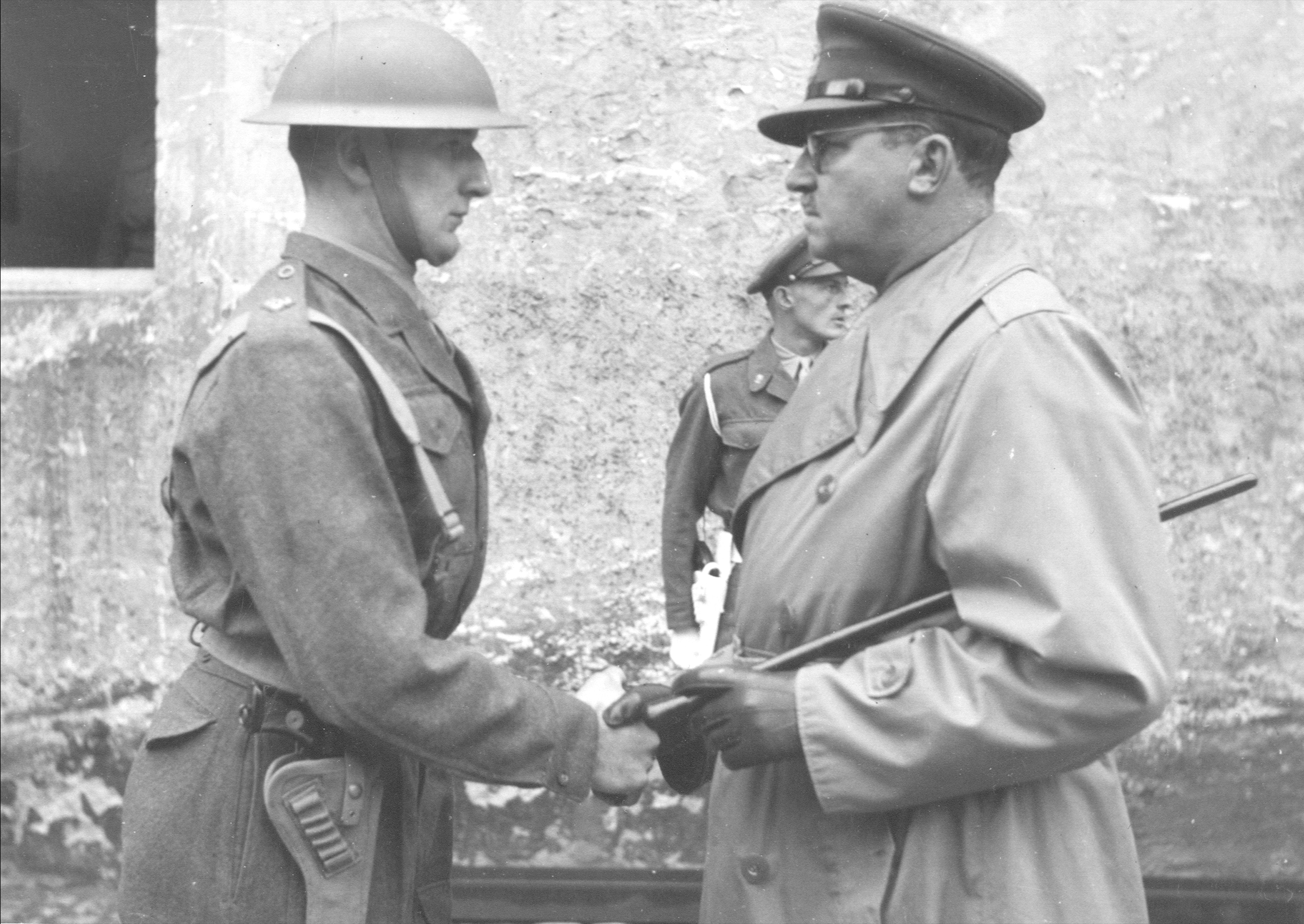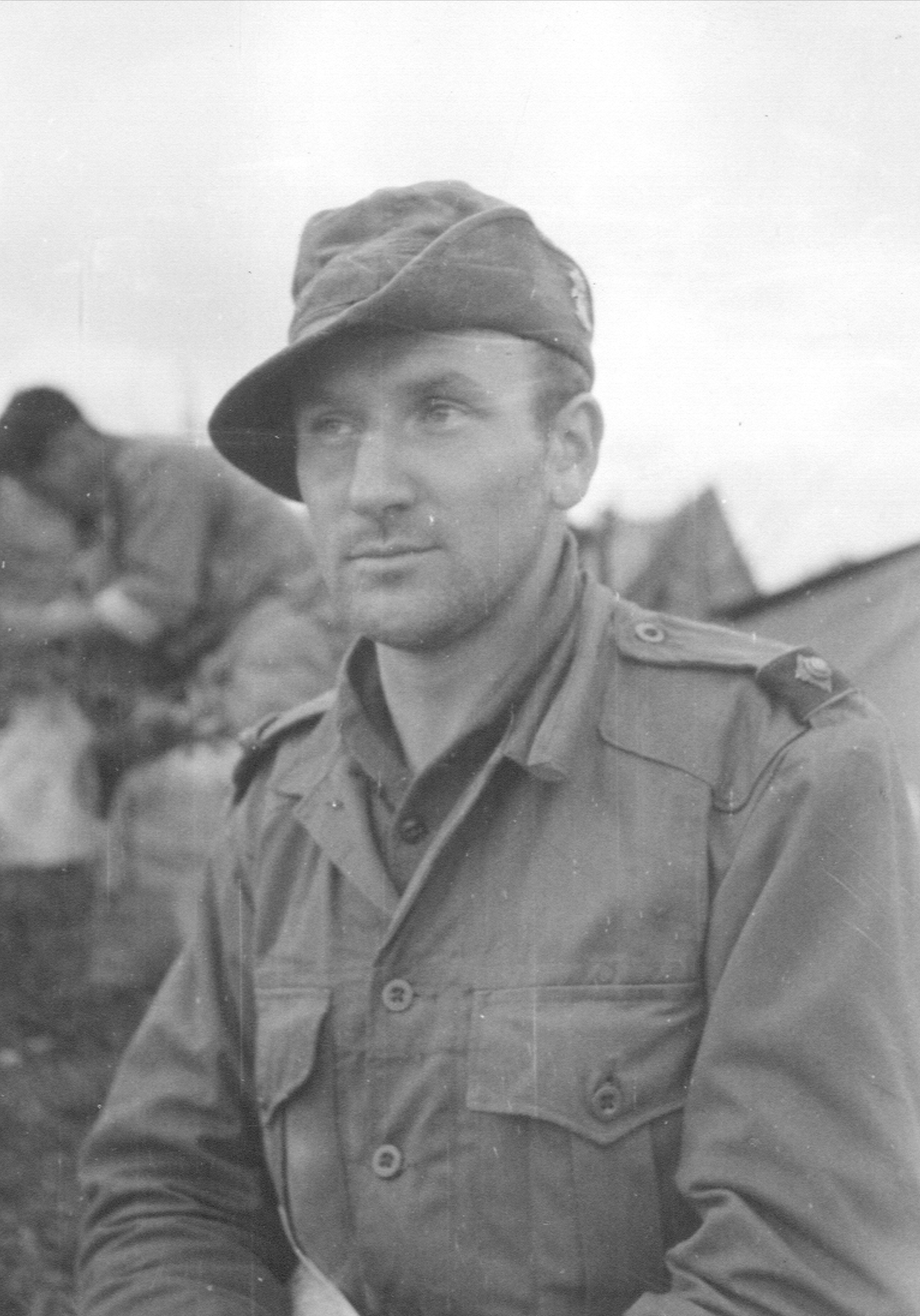WAGENER, Joseph

Registration Nr.: O 0031
Birthday: 28.08.1924, Heinerscheid
Father: Jean WAGENER
Mother: Josephine KREMER
Service entry: 20.04.1945
Contingent: 1st
Ranks: Aspirant (1945)
Lieutenant (1950)
Major-Lieutenant (1951)
Capitaine (1961)
Major (1968)
Lieutenant-Colonel (1978)Death: 25.11.2019, Luxembourg City
After the Nazis took over Luxembourg and implented military conscription on the nation’s youth, Tun was incorporated into the Reichsarbeitsdienst (RAD). Suffering under the rough reign of Nazi terror, like many young Luxembourgers, he refused to serve in the German Wehrmacht on the frontline. Living in constant fear from the Gestapo and the SD, he hid for 13 months until the liberation of Luxembourg in the house of the Wilmes-Patz family in Breidfeld near Weiswampach, together with the two forced recruits Michel Wilmes, son of the Wilmes-Patz couple, and François Eberhard from Neudorf. Due to his subversive activities as part of the resistance, Tun was certified as a flawless patriot by allied officials and national law enforcement.
Shortly after the war, he submitted his application papers to the Officer Cadet Training Center of the US-Army in Fontainebleau, France, where he was admitted on 20 April 1945. One year later, he took his post at the Centre d'Instruction in Walferdange before reporting to the École Royale Militaire in Brussels for two more months. From October 1949 until August 1950, he attended the École Spéciale Militaire Interarmes de Saint-Cyr, where he graduated and was finally appointed officer. Shortly thereafter, the Luxembourgish Army approached him to lead the first contingent in the Korean War.
In a personal statement, he revealed that his motives to command the Luxembourgish detachment in battle were primarily founded on his willingness to improve as an officer. However, just like most of his comrades, the sense of adventure, the journey, and the fascination of the country of Korea itself cannot be disregarded in this matter. Moreover, he wanted to prevent the Korean people from experiencing what happened to Luxembourg during World War II.
On 18 December 1950, the first contingent embarked the Kamina in Antwerp and sailed off to Pusan, Korea, where they arrived on 30 January 1951. Tun was not the only veteran mentioning the ship’s very poor condition and lack of comfort.
Once the Luxembourgers arrived in Korea, their main objective was to secure the perimeter around Taegu, and later Seoul. Heavily packed and in constant fear of hostile ambushes, Tun led his detachment safely through the Korean battlefields.
Being involved in various missions, the first real challenge awaited near the Han River. Here, they had their first encounter with enemy troops in early March. In mid-April 1951, the Luxembourgish contingent was attached to the 29th Independent Infantry Brigade (United Kingdom). In the prospect of the upcoming events, Tun was ordered to take a few of his men to the north side of the Imjin River and to press on to the enemy lines.
The group got as far as the Chinese lines before they were discovered, which led to a heavy exchange of fire, forcing Tun’s group to retreat. Their mission was nevertheless successful, as the group was not only capable of taking a Chinese prisoner, but also able to determine the exact location of the enemy lines. Tun and his men were praised for their merits and received numerous military citations.
After his service in the Korean War, Tun pursued a career as an officer in the Luxembourg Army. Unlike most of the veterans, Tun embodied pure passion for the Korean War and openly shared his impressions and experiences. On many occasions, he was a real inspiration and role model for younger and older soldiers alike.
Resigning from the military as Lieutenant-Colonel in 1979, Tun settled in Echternach, where he had already passed his time as a student. Ever since, he shared a deep affinity for the abbey city, which he articulated during guided tours, he held in english for numerous tourists from all around the world.










